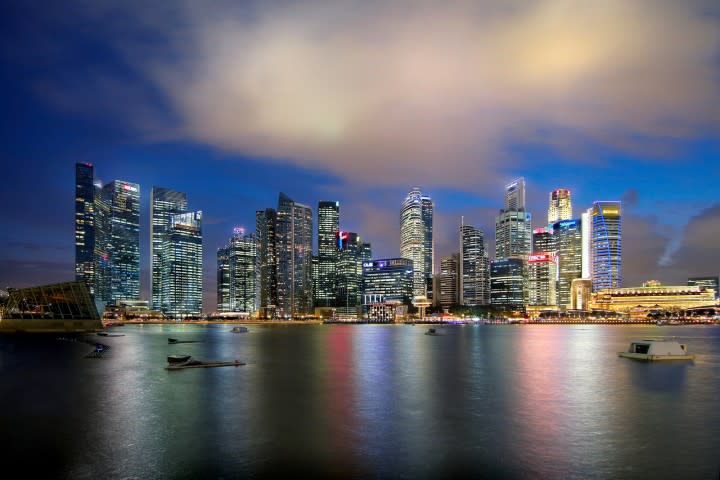To build a tech startup ecosystem, China should look to Singapore

Last week, China’s State Council approved a host of new government programs aimed at helping out domestic startups, especially tech startups. The programs will allow startups to access more affordable land, government subsidies, tax breaks, cut prices on power and internet, and more. Other branches of the government is also mulling additional pro-startup plans like easing stock listing rules to and equity crowdfunding laws to make it easier for Chinese startups to raise money from the masses.
The measures are part of China’s broader “Internet plus” policy, which Premier Li Keqiang introduced at China’s 12th National People’s Congress back in 2013. The goal of this strategy, according to Li himself:
We will develop the “Internet Plus” action plan to integrate mobile Internet, cloud computing big data, and the Internet of Things with modern manufacturing, to encourage the healthy development of e-commerce, industrial networks, and Internet banking, and to get Internet-based companies to increase their presence in the international market.
Clearly, China recognizes that a healthy internet industry is going to be key to future economic growth, and that in the fast-moving world of technology having a healthy industry means encouraging innovation and disruption. The new measures announced last week are likely just a first step in China’s move towards making life as a tech startup easier. And thankfully, there’s a regional model it would be well-advised to emulate: Singapore.
After all, when it comes to Asia’s tech industry, few governments are as startup-friendly as Singapore’s. When my colleague Terence catalogued them last year, he listed 14 major government-funded startup programs – all this for a nation of just five million people! (To put that in perspective, China would need 3,799 pro-startup programs to match Singapore’s program-per-capita level). And Singapore’s policies work: over the past few years, Singaporean startups have seen significantly more successful exits than startups from any other major hub in the region. In part as a result, Singapore’s economy has remained strong and is poised for continued growth.

Sculpture in the China-Singapore Suzhou Industrial Park
To my knowledge, Chinese officials haven’t explicitly stated that China plans to model its approach on Singapore’s. But it’s likely to be something that Chinese authorities consider. It’s no secret that Chinese officials have long been interested in the Singapore economic model. China sends thousands of officials to Singapore each year to study it. And when Singapore’s “founder-in-chief” Lee Kuan Yew died earlier this year, top Chinese leaders including the president, premier, deputy premier, and foreign minister all sent personal messages of condolence. Praise for Lee and his groundbreaking approach to developing local industry was all over China’s state-run media.
Moreover, Singapore served as one of China’s earliest partners in its drive to modernize its industries, working with China in a joint-venture on a high-tech industrial park in Suzhou in the 1990s. The two countries eventually had a bit of a falling-out over that project, but there’s no denying that Singapore has remained a source of inspiration for Chinese officials thinking about how to turn the Middle Kingdom into the kind of economic powerhouse that Singapore is today.
Chinese officials should take a similar approach to the tech startup space. True, China’s market is hundreds of times larger than Singapore’s, and it already has a number of massive global players in the tech scene. But China’s size and tech success also poses a risk to Chinese early-stage startups, who may be passed over by investors interested in more proven ventures. At the moment China is in the middle of a funding boom and seed money isn’t hard to find, but historically Chinese VCs have been conservative, and more interested in investing in later-stage ventures that have less risk and a higher chance of success. If China’s funding bubble pops – which many VCs expect it to – it might mark a return to the days where early-stage startups had a difficult time securing funding.
More government programs like Singapore’s to help startups survive the first year will help to ensure that even if China’s funding bubble bursts, it will be able to continue producing interesting and innovative startups.
This post To build a tech startup ecosystem, China should look to Singapore appeared first on Tech in Asia.

 Yahoo Finance
Yahoo Finance 
